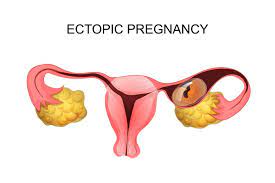Placenta Issues in Pregnancy
Best care for Placenta Issues in Pregnancy
What is placenta?
Understanding the Placenta
The placenta is a vital organ that forms during pregnancy, providing essential oxygen and nutrients to the developing fetus. Comprised of tissues, fluids, and other materials, the placenta envelops and supports the embryo within the uterus. It connects to the uterus via the umbilical cord, ensuring a direct supply line of sustenance and waste removal between mother and baby.
The placenta consists of two primary layers:
- Outer Layer: Acts as a protective barrier, regulating the entry and exit of substances.
- Inner Layer: Facilitates nutrient transfer from maternal blood vessels to the embryo, subsequently transporting waste away.
Functions of the Placenta
The placenta is a temporary organ performing critical roles akin to the lungs, liver, and kidneys of the unborn child. It supplies oxygen and nutrients, filters out harmful substances, and removes waste products and infectious agents from the baby's bloodstream.
Factors Influencing Placental Health
The placenta’s well-being is crucial for both maternal and fetal health during pregnancy. Several factors can impact its health, including:
- Maternal Age
- Placental Weight
- Gestational Age
- Multiparity (having multiple pregnancies)
- Smoking and Alcohol Consumption
- Stressful Living Conditions
- Maternal Immune System Functioning
- Abnormal Fetal Positioning
- Poor Diet
- Infections
- Blood-Clotting Disorders
- High Blood Pressure
- Abdominal Trauma
Common Placental Issues
Placental problems can arise and pose risks during pregnancy. Some of the most common issues include:

- Placental Abruption: The placenta detaches from the uterine lining before delivery.
- Placenta Previa: The placenta covers the cervix, complicating childbirth.
- Placenta Accreta: The placenta invades and attaches deeply into the uterine wall.
- Retained Placenta: Portions of the placenta remain inside the uterus post-delivery, requiring manual removal to prevent excessive bleeding.
Signs and Symptoms of Placental Problems
Indicators of placental issues may include:
- Abnormal fetal heart rate patterns (e.g., very slow or rapid heartbeat)
- Severe, persistent morning sickness or vomiting
- Abdominal, back, or pelvic pain
- Heavy vaginal bleeding
- Early labor
- Unexpected pregnancy loss
Reducing the Risk of Placental Problems
To minimize the risk of placental issues, consider the following steps:
- Get Plenty of Rest: Ensure adequate rest throughout pregnancy.
- Eat Nutritious Foods: Maintain a balanced diet and avoid harmful substances like caffeine, alcohol, tobacco, and drugs.
- Avoid Harmful Chemicals: Steer clear of exposure to chemicals found in products like air fresheners or detergents.
- Prevent Infections: Practice good hygiene, wash hands regularly, and avoid contact with infected individuals.
- Regular Healthcare Visits: Attend all scheduled appointments with your healthcare provider or gynecologist for continuous monitoring and care.
By following these guidelines, you can support a healthy pregnancy and reduce the likelihood of placental complications.


